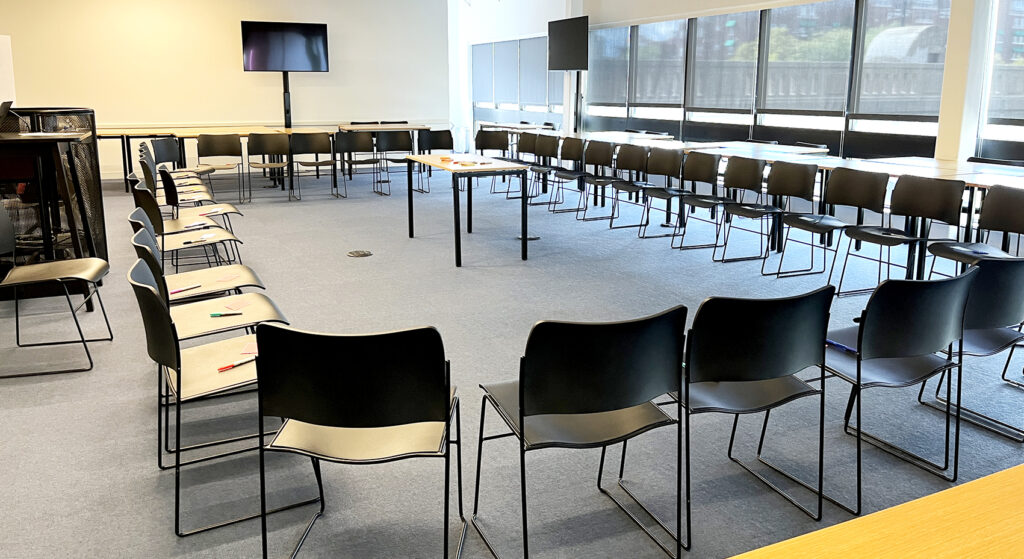
This semester I’m teaching a new elective course on personal well-being with a twist. Rather than following traditional emotional well-being approaches from positive psychology or cognitive behavioral therapy, I’m piloting an interdisciplinary curriculum which integrates mindfulness, metacognition, and positive psychology with imagination (and creativity).
Positive Psychology: An important goal of the course is to encourage students to focus on their positives qualities and learn how to leverage their signature strengths and positive emotions so they can amplify and use them when they need them. Many activities build on evidence-based positive interventions — such as, savoring, acts of kindness, goal setting — to foster positive emotional habits in the students. Each of these activities is also enriched with imagination and creativity techniques. This added layer aims to both equip students with a broader toolkit and explore the link between imaginative thinking and emotional well-being.
Mindfulness: The practice of being present is at the core of emotional well-being. Most negative emotions emerge from our tendency to time travel to the past or the future, either to remember bad experiences or to imagine catastrophic scenarios. Each class starts with mindfulness giving the students the space to practice a different way to stay present and find the one that works best for them. The goal is to expose students to a wide range of ways to practice mindfulness from multiple types of meditation and breathing techniques to journaling exercises and yoga movements.
Metacognition: Inner-growth and self-awareness are at the root of positive emotional well-being. By understanding our strengths, fears, thinking traps, and emotional patterns, we can then focus on developing or identifying strategies for self-regulation and increase resilience. As homework, each week, students have to complete short, personal activities putting into practice a concept or technique covered in class. As Laurie Santos explains in her “The Science of Well-Being” course, these are not hard or time-consuming activities, but their commitment to completing each one is key for the students to see their benefits; i.e., rewire their brains and change unhelpful thinking and emotional habits.
Imagination: Rooted in scientific studies, the course integrates activities focused on collaborative imagination, positive futuring, manifestation, and visualization — and some creativity techniques too. By fostering imaginative thinking, the goal of these activities is to build the habit of dreaming and reframing to cultivate positive emotions and envision uplifting alternatives to current scenarios. From a neurocognitive perspective, this activity also activates similar parts of the brain that light up when we are experiencing greater emotional well-being.
Challenges & Opportunities
Classes are highly dynamic and hands-on — no phones or laptops needed! This is the time for the students to focus on them by practicing techniques and better understanding their emotions, strengthens, and thinking patterns. By the end of the semester, the goal is that students start developing new habits of thinking and feeling as well as have identified their passions and purpose.
As the course begins, there are more than 45 undergraduate students enrolled. On the one hand, as an elective, it is great to see so much interest on internal development and growth. On the other hand, in a course about inner-growth and self-reflection, 80% depends on students’ commitment and effort with the activities during and outside the classroom time. Furthermore, as an interactive course, having such a large cohort will demand imagination and flexibility on my end to make sure students get the most of each activity.
Despite these challenges, the course is a unique opportunity to significantly impact students’ lives and help them both deepen their self-awareness and harness their imagination. For a population that has an over exposure to artificial intelligence and learning related skills, a college course fostering uniquely human skills — self-awareness, conceptual thinking, abstract thinking, daydreaming, deep listening, empathy, face-to-face conversation, eye contact, emotional intelligence — could also contribute to the development of a healthier society.
One response to “Imagination + Well-Being in Action: An Interdisciplinary Curriculum”
[…] week the focus in the personal well-being course was on emotions — particularly on cultivating positive emotions. Savoring is a common technique, […]